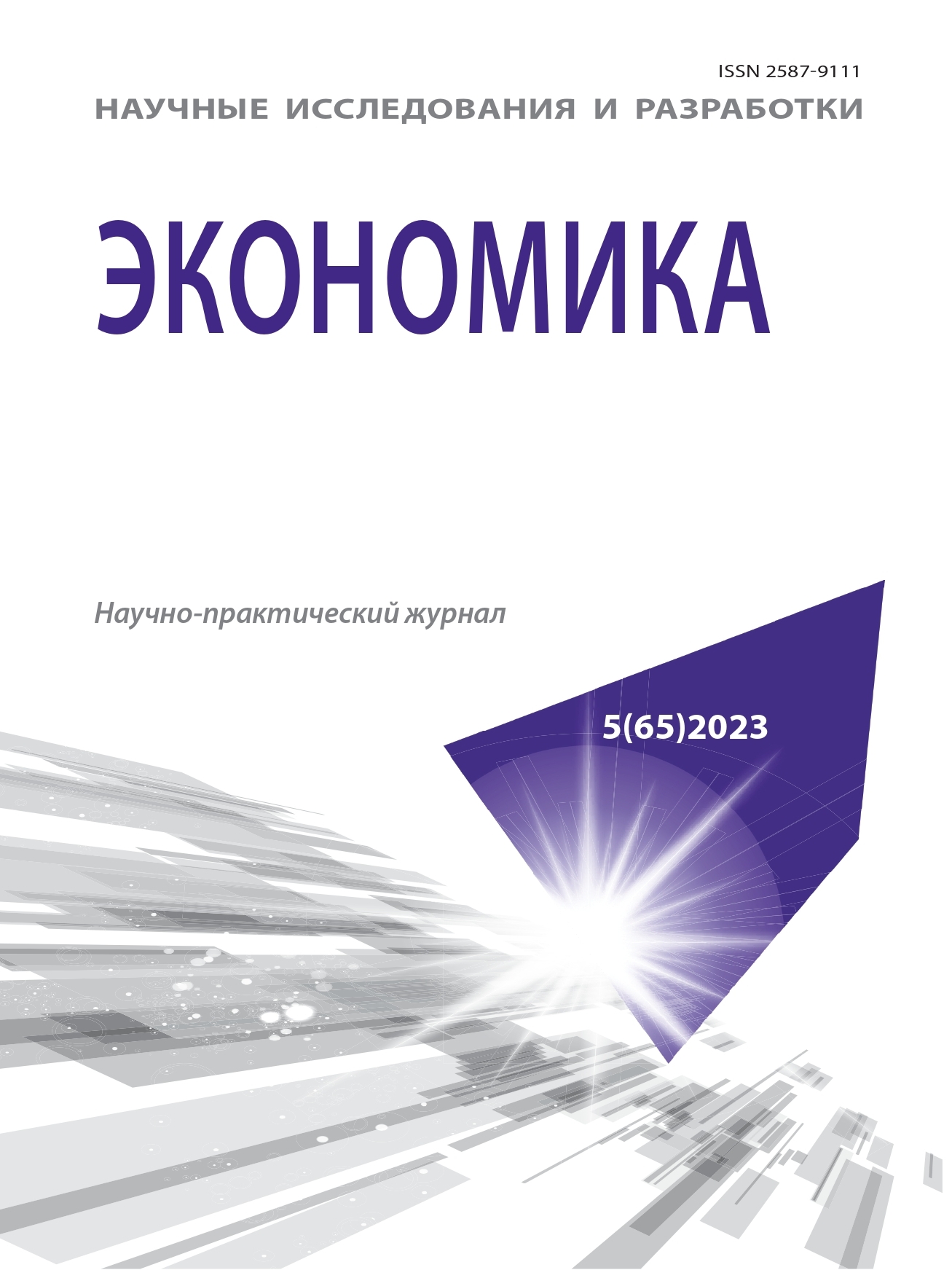Tula, Tula, Russian Federation
Tula, Tula, Russian Federation
To identify the reasons for the limited economic growth in modern Russia, the problems of resources that ensure economic growth are analyzed. These resources are the human capital of skilled and highly skilled workers and new technologies. The problem of human capital lies in the fact that the main trend in Russia in the second decade of the 21st century was the crushing of the growth rate of human capital in the form of a decrease in the level and loss of premiums for education of all types and levels. The problem of new technologies is the low level of exports of high-tech goods, which is less than 3% of the world volume, which corresponds to the 30th place in the world. Problems in the field of education and science, firstly, are due to the fact that management is based on a command-and-control style, in which management is based on the application of orders, norms, standards, the provisions of which are full of paradoxes and errors. and application of control, organized, among other things, on the basis of mass reporting. Secondly, the problems are due to the fact that the costs of education in modern Russia are small, amounting to 4–5% of GDP, therefore the country ranks 120th in the world in terms of the indicator, and the cost of research and development in the country is about 1% of GDP, which corresponds to 37th place in the world in this indicator. The number of highly qualified personnel in the field of education and science is shrinking. Problem solving can be achieved by increasing the cost of education and science, reorganizing the management systems of education and science, which does not ensure the coordination of activities and the use of resources necessary to achieve the goals of education and science. The regulatory and legal framework should be revised, organizational and managerial structures should be rebuilt, and the number of managerial personnel should be radically reduced.
human capital, new technologies, costs, science, education, management style
1. Basovskiy L.E., Basovskaya E.N. Postindustrial’nye uklady v jekonomike Rossii [Post-industrial structures in the Russian economy]. Moscow, INFRA-M Publ., 2017. 159 p. (in Russian)
2. Leontief W. Essays in Economics: Theories, Theorizing, Facts, and Policies Paper-back. Transaction Publishers, 1985. 423 p.
3. Becker Gary S. Human Capital: A Theoretical and Empirical Analysis, with Special Reference to Education. 3 rd. Edition. University Of Chicago Press, 1994. 244 pp.
4. Schultz T. Capital formation by education. Journal of Political Economy. 1960, 68 (6), 571-583.
5. Schultz T. W. Investment in human capital. American Economic Review. 1961. Vol.51. No.1. pp. 1-17.
6. Gillis D. Public education as a high-yield investment: the theory of human capital in the discourse of European politics. Pedagogical Journal. 2011. 2 (2), 224-245.
7. Gillis D. Human Capital Theory in Education. In: Peters M. (ed.) Encyclopedia of Pedagogical Philosophy and Theory. Springer, Singapore. 2015. URL: https://doi.org/10.1007/978-981-287-532-7_254-1
8. Image How Wealthy is Russia? Measuring Russia’s Comprehensive Wealth from 2000-2017. The World Bank. URL: https://www.vsemirnyjbank.org/ru/country/russia/publication/how-wealthy-is-russia
9. Basovskiy L. E., Basovskaya E. N. The problem of the formation of human capital in Russia by the education system // Scientific Research and Development. Economics. 2022. no. 5. pp. 24-29. DOI: https://doi.org/10.12737/2587-9111-2022-10-5-24-29 (Date of access 07.06.2023). (in Russian) EDN: https://elibrary.ru/EDEJCZ
10. Basovskiy L. E. Degradation of the Main Function of Education As a Managerial Problem // Scientific Research and Development. Economics. 2023. no. 1. pp. 61-66. DOI: https://doi.org/10.12737/2587-9111-2023-11-1-61-66 (Date of access 07.06.2023). (In Russian) EDN: https://elibrary.ru/EDHISP
11. Rejting stran mira po urovnyu raskhodov na obrazovanie [Rating of countries in the world by the level of education spending]. Gumanitarnyj portal. URL: https://gtmarket.ru/ratings/global-education-expenditure (In Russian).
12. Science and Technology Indicators in the Russian Federation: 2023 : Data Book / V. Vlasova, L. Gokhberg, K. Ditkovskiy et al.; National Research University Higher School of Economics. Moscow: HSE, 2023. (in Russian).
13. Mescon Michael H, Albert Michael, Franklin Khedouri Franklin. Management. Harper & Row, 1988. 777 p.
14. Tennent K.D. The Age of Strategy: From Drucker and Design to Planning and Por-ter. In: Bowden B., Muldoon J., Gould A., McMurray A. (eds) The Palgrave Hand-book of Management History. Palgrave Macmillan, Cham. 2020. URL: https://doi.org/10.1007/978-3-319-62348-1_36-1
15. Peters T. Re-Imagine! Business Excellence in a Disruptive Age. Published March 2006. 352 p.
16. Seddon J. Freedom from Command & Control. Rethinking Management for Lean Service. New York: Productivity Press, 2005. 232 p.






